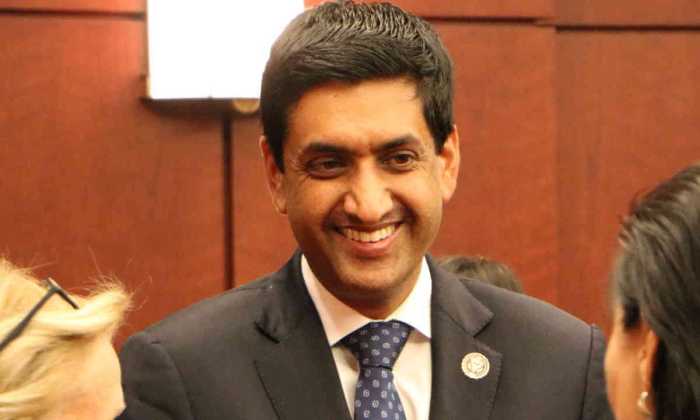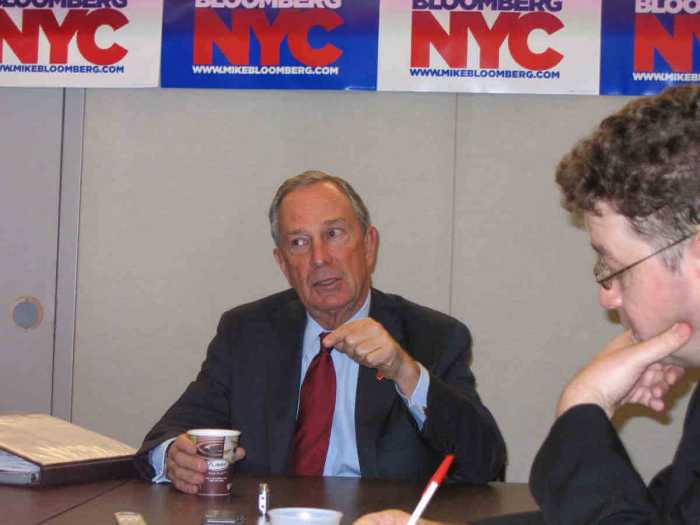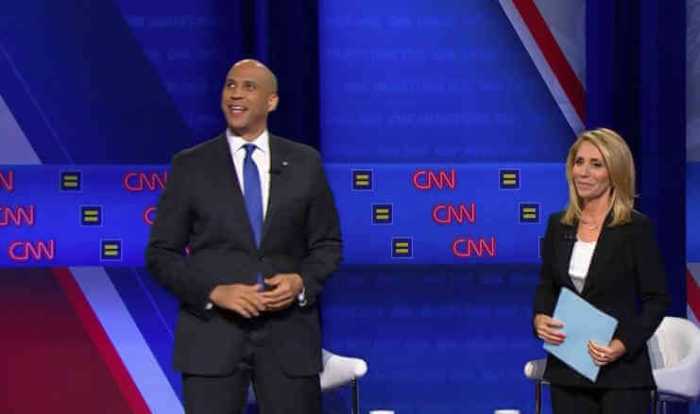BY PAUL SCHINDLER | Gay writer and erstwhile blogger Andrew Sullivan, in a roughly 7,000-word cover story in New York magazine, offers an analysis of the Trump phenomenon he perhaps believes is suitably apocalyptic for his return to long-form journalism.
And its title, “Our Democracy Has Never Been So Ripe for Tyranny,” is smartly calculated to engender visceral appeal among thinking people alarmed at the prospect of electing as president a thuggish, Know Nothing, xenophobic, and race-baiting plutocrat who has succeeded to date by spouting half-formed, largely incoherent policy positions.
Readers, however, could be forgiven for quickly growing suspicious of a political treatise sub-headed on the magazine’s inside “Democracies end when they are too democratic.”
Sullivan’s essay is written in his customary manner of stylish but self-conscious erudition. We read about his first encounter with a Socratic dialogue on democracy in Plato’s “Republic,” and learn that the lessons he drew from that square with what James Madison warned us against in “The Federalist Papers.” Sullivan also dips into moral philosopher Eric Hoffer’s thinking about mass political movements from 65 years ago and novelist Sinclair Lewis’ imagining of an American fascist leader from 80 years ago.
Sullivan is unsparing in his takedown of Trump’s qualifications and his alarm about the prospect he could win. The GOP nominee’s policy thinking is based in “make-believe” — whether about a wall solving the nation’s immigration problems or a global trade war retiring our national debt. Trump’s make-believe must be buttressed by an appeal to “hatred,” and he has “championed violence” like no other top tier presidential candidate in modern times. Like any tyrant, Sullivan writes, Trump “is utterly lacking in self-control,” something Plato actually warned us about.
Unwilling to ascribe Trump’s popularity to sheer voter stupidity, Sullivan is attentive to real economic hardship borne by his white working class voters. In a global economy, too many American workers draw only short straws; with the nation’s unemployment rate halved since the depths of the 2008 crash, little of the productivity gains have profited hourly workers.
All this comes, Sullivan rightly notes, at a time when authority — whether political, media, religious, or educational — faces unprecedented challenges to its legitimacy.
Sullivan’s analysis falters, however, in the unbridgeable gap between his sympathy for working class Americans’ economic plight and his prescription for what ails American political culture — the need to acknowledge that “elites still matter in a democracy.”
And Sullivan veers into another ditch — one he often finds himself in — by settling scores with ideological opponents and so diverting himself from his primary purpose.
In talking about the personal isolation experienced by many white working class Americans, Sullivan mourns the loss of the union hall as an avenue for socialization. That’s something Bernie Sanders would probably second, but the Vermont senator would never have eulogized the late British Prime Minister Margaret Thatcher, as the British-American Sullivan did, for her success in beating back the unions and freeing Britain from the grip of a culture “hostile to anyone with initiative, self-esteem, and the ability to make money.”
From Sullivan’s telling, the real problems facing Trump’s working class voters are not employment prospects or job skills but rather sneering from the left.
“Much of the newly energized left has come to see the white working class not as allies but primarily as bigots, misogynists, racists, and homophobes, thereby condemning those often at the near-bottom rung of the economy to the bottom rung of the culture as well,” Sullivan writes. “These working-class communities, already alienated, hear — how can they not? — the glib and easy dismissals of ‘white straight men’ as the ultimate source of all our woes. They smell the condescension and the broad generalizations about them — all of which would be repellent if directed at racial minorities.”
There’s even a moment where I wondered if the entire point of this exercise was to allow Sullivan — having made common cause in recent years with LGBT activists in the push for marriage equality — the chance finally for a permanent divorce.
“The Black Lives Matter left stoked the fires still further,” he writes, “so did the gay left, for whom the word magnanimity seems unknown, even in the wake of stunning successes.”
In what for him is a formulaic critique of left thinking, he writes that the mocking of working class morals and religion — by what he perversely terms a “rainbow-flag polity” — “is just one aspect of what Trump has masterfully signaled as ‘political correctness’ run amok, or what might be better described as the newly rigid progressive passion for racial and sexual equality of outcome, rather than the liberal aspiration to mere equality of opportunity.”
It’s hardly surprising, then, that Sullivan feels free to impose a wholly inappropriate equivalency between Trump and Bernie Sanders, whom he dubs “the demagogue of the left.”
The authority of elites, in Sullivan’s account, has been in full retreat since the new century began. We are only lucky, he writes, that Barack Obama was an elitist wolf in populist sheep drag. We will not be so lucky, he says, if we are unable to restore the influence of elites in our political system. And we must start with those Republican elites now desperate to resist Trump.
“This is not the moment to remind them that they partly brought this on themselves,” he writes, in considerable understatement. “This is a moment to offer solidarity.”
Fortifying the walls of elitism is not the answer. Institutions in America do face a credibility crisis, but making them stronger is not about returning to a culture of deference unmoored to legitimacy, but rather about making those institutions accountable to the people they should serve in any democracy. One need not vote for Bernie Sanders to recognize that the American economy has failed too many of its people. Finding workable solutions to that problem should be the business of politics. And that’s a much more difficult conversation to have.






































